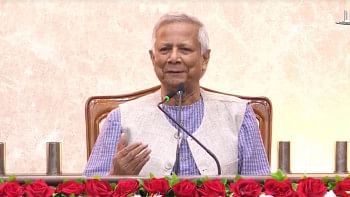Desperation rising amid acute hunger WHO warns
The World Health Organization said it led missions to barely functioning hospitals in northern Gaza at the weekend, describing growing desperation and starving people stripping an aid truck of supplies.
The UN health agency and its partners delivered aid, including fuel, to the devastated Al-Shifa hospital, once Gaza's biggest and most advanced medical facility, WHO chief Tedros Adhanom Ghebreyesus said late Sunday on X, formerly Twitter.
What the participants in the December 23 mission witnessed was "rising desperation due to acute hunger," Tedros said.
"Partners demand immediate scale-up of food and water to ensure population health and stability."
At Al-Shifa, Tedros warned that "relentless hostilities and massive numbers of wounded people have brought its capacities to its knees".
He voiced hope that Saturday's delivery of 19,200 litres of generator fuel would help revive vital services at the hospital, which can currently only provide "the most basic of first aid".
But, he stressed, "more will be needed".
Sean Casey, a WHO Emergency Medical Teams coordinator, described overflowing surgery wards and being unable to evaluate al-Shifa's operating theatres, "because there are people inside and they are not opening the door".

 For all latest news, follow The Daily Star's Google News channel.
For all latest news, follow The Daily Star's Google News channel. 



Comments